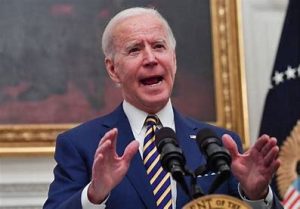The Biden administration has taken a significant step by temporarily halting the approval process for the contentious Calcasieu Pass 2 liquefied natural gas (LNG) export terminal, signaling a potential shift in the approach to LNG infrastructure projects. According to a report from The New York Times, the administration is urging the Department of Energy (DOE) to thoroughly assess the economic, national security, and climate implications of the project before proceeding with approval.

This development aligns with mounting opposition from climate advocates and residents in Louisiana who have been actively campaigning against the expansion of LNG infrastructure. A planned sit-in at the DOE headquarters in Washington, D.C. for February underscores the intensity of efforts to challenge the buildout. Activists emphasize that Calcasieu Pass 2 (CP2) could result in emissions 20 times greater than the controversial Willow oil drilling project, with over 20 planned LNG export facilities in the U.S. Gulf Coast potentially surpassing the annual climate pollution of the entire European Union.
Allie Rosenbluth, U.S. Program Manager at Oil Change International, interprets President Biden’s decision as a response to effective grassroots organizing and a recognition of the political ramifications of climate policies. The reported delay in the DOE’s decision on CP2 could extend beyond the November election, with a comprehensive evaluation of the project’s public interest and climate impacts.
Bill McKibben, a prominent climate activist, expressed cautious optimism, hailing this potential move as the most significant action a U.S. president has taken against the fossil fuel industry. However, observers stress the need for vigilance, recognizing that a temporary pause may not be sufficient.
Jamie Henn, Director of Fossil Free Media, sees the reported decision as a major victory against fossil fuels, potentially thwarting nearly 20 new LNG facilities and their associated emissions. The Center for Biological Diversity emphasizes that while a pause is a welcome step, a more comprehensive rejection of CP2 and all new oil and gas projects is necessary for a sustainable future.
The Louisiana Bucket Brigade sees the administration’s move as a potential victory for the state, hoping it will lead to a phased reduction in gas exports. Environmental justice activist Roishetta Ozane acknowledges the progress but emphasizes the ongoing fight to halt permits and prevent further approval of polluting projects.
Despite the reported progress, Travis Dardar, founder of Fishermen Involved in Sustaining our Heritage (FISH), stresses the need for continued vigilance and activism against powerful oil and gas interests. National organizations, including Sierra Club, emphasize the importance of sustained pressure to ensure that the reported pause leads to substantive changes in LNG policies. A planned February sit-in is set to proceed unless the administration formally announces the temporary pause in writing.
